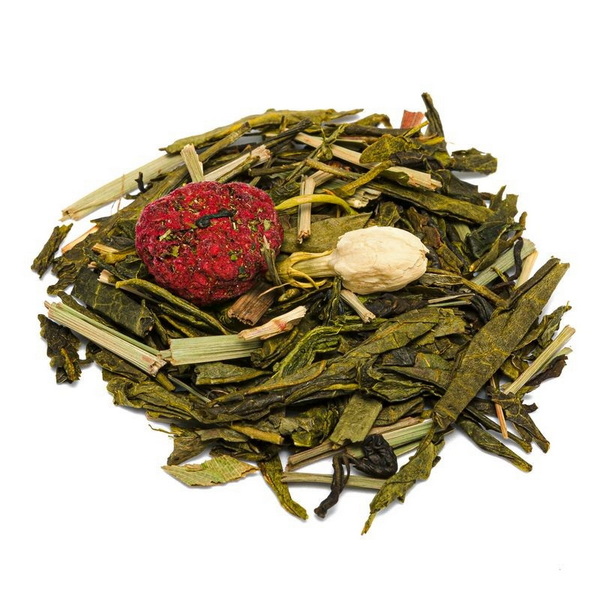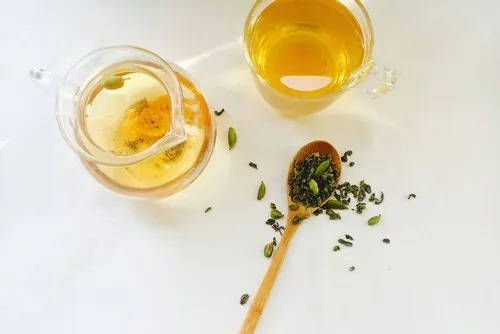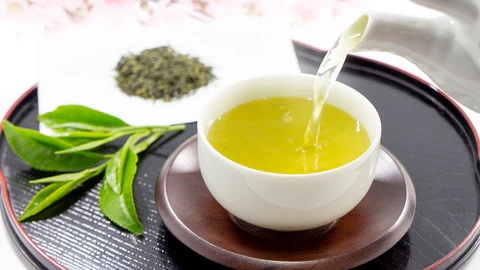Content Menu
● Introduction to L-Theanine and Passionflower
>> L-Theanine
>> Passionflower
● Comparison of Efficacy
>> L-Theanine Efficacy
>> Passionflower Efficacy
● Is L-Theanine 60% More Effective?
● Mechanisms of Action
>> L-Theanine Mechanism
>> Passionflower Mechanism
● Safety and Side Effects
>> L-Theanine Safety
>> Passionflower Safety
● Conclusion
● FAQs
>> 1. What is L-theanine and how does it work?
>> 2. Is passionflower effective for anxiety?
>> 3. Can L-theanine and passionflower be used together?
>> 4. What are the side effects of L-theanine?
>> 5. How much L-theanine should I take for anxiety?
● Citations:
Anxiety is a widespread mental health issue affecting millions worldwide. Natural remedies like green tea L-theanine and passionflower have gained popularity for their potential to alleviate anxiety symptoms. This article explores whether green tea L-theanine is 60% more effective than passionflower in managing anxiety.

Introduction to L-Theanine and Passionflower
L-Theanine
L-theanine is an amino acid primarily found in green and black tea. It is known for its calming effects and ability to reduce stress and anxiety without causing drowsiness. Research suggests that L-theanine can increase levels of serotonin, dopamine, and GABA in the brain, which are neurotransmitters associated with mood regulation and relaxation. This unique ability to modulate neurotransmitter levels makes L-theanine a promising natural remedy for anxiety.
Passionflower
Passionflower is a plant used for centuries in traditional medicine to treat anxiety and insomnia. It is believed to work by increasing GABA levels in the brain, similar to L-theanine. However, there is less scientific evidence supporting its efficacy compared to L-theanine. Passionflower is often used in herbal combinations, which may enhance its effects.
Comparison of Efficacy
L-Theanine Efficacy
Studies have shown that L-theanine can significantly reduce stress and anxiety in individuals exposed to stressful conditions. A systematic review found that supplementation with 200-400 mg/day of L-theanine may assist in reducing stress and anxiety. Additionally, L-theanine has been shown to improve sleep quality and cognitive function, which can indirectly benefit anxiety management. Its ability to promote relaxation without sedation makes it appealing for those seeking a natural anxiety solution without the risk of drowsiness.
Passionflower Efficacy
While passionflower is traditionally used for anxiety, the scientific evidence supporting its effectiveness is limited. Some studies suggest that it can reduce anxiety symptoms, but these findings are not as consistent or robust as those for L-theanine. Passionflower may interact with certain medications, which is a consideration for those using it as an anxiety treatment. It is often used in combination with other herbs, which may enhance its effects but also increase the risk of interactions.
Is L-Theanine 60% More Effective?
There is no direct study comparing the efficacy of L-theanine and passionflower with a specific percentage difference like 60%. However, based on the available research, L-theanine appears to have more consistent and scientifically supported benefits for anxiety reduction compared to passionflower. The lack of robust clinical trials for passionflower limits its comparison to L-theanine in terms of efficacy.

Mechanisms of Action
L-Theanine Mechanism
L-theanine works by crossing the blood-brain barrier and influencing neurotransmitter levels. It promotes relaxation and reduces stress by increasing GABA, serotonin, and dopamine, which are crucial for mood stabilization and anxiety reduction. Additionally, L-theanine may enhance alpha brain waves, which are associated with a relaxed yet alert state.
Passionflower Mechanism
Passionflower is believed to act on the GABA system, similar to benzodiazepines, but with fewer side effects. However, its exact mechanism is not fully understood, and more research is needed to clarify how it affects neurotransmitter levels and anxiety symptoms.
Safety and Side Effects
L-Theanine Safety
L-theanine is generally considered safe with minimal side effects. High doses may cause headaches or impaired cognitive performance in some individuals, but these effects are rare. It is well-tolerated and can be used long-term without significant risk.
Passionflower Safety
Passionflower is also generally safe but may interact with certain medications, such as sedatives and blood thinners. It should be used under medical supervision, especially for those with pre-existing health conditions or taking other medications.
Conclusion
While both L-theanine and passionflower are used as natural remedies for anxiety, the scientific evidence suggests that L-theanine may be more effective due to its consistent benefits in reducing stress and anxiety. However, there is no conclusive evidence to support a specific percentage difference in efficacy like 60% between the two. Further research is needed to fully understand their comparative benefits and potential synergies.

FAQs
1. What is L-theanine and how does it work?
L-theanine is an amino acid found in green and black tea that helps reduce stress and anxiety by increasing serotonin, dopamine, and GABA levels in the brain.
2. Is passionflower effective for anxiety?
Passionflower is traditionally used for anxiety, but the scientific evidence supporting its effectiveness is limited compared to L-theanine.
3. Can L-theanine and passionflower be used together?
There is no specific research on combining L-theanine and passionflower, but generally, natural supplements can be used together under medical supervision to avoid interactions.
4. What are the side effects of L-theanine?
L-theanine is generally considered safe, but high doses may cause headaches or impaired cognitive performance in some individuals.
5. How much L-theanine should I take for anxiety?
Typically, 200-400 mg of L-theanine per day is recommended for anxiety relief.
Citations:
[1] https://pubmed.ncbi.nlm.nih.gov/31758301/
[2] https://www.healthline.com/health/l-theanine
[3] https://pmc.ncbi.nlm.nih.gov/articles/PMC4728665/
[4] https://www.medicalnewstoday.com/articles/324120
[5] https://health.clevelandclinic.org/l-theanine
[6] https://pmc.ncbi.nlm.nih.gov/articles/PMC6836118/
[7] https://pmc.ncbi.nlm.nih.gov/articles/PMC8475422/
[8] https://www.health.com/l-theanine-benefits-7554183
[9] https://digitalcommons.calpoly.edu/cgi/viewcontent.cgi?article=1010&context=fsnsp
[10] https://www.talkspace.com/mental-health/conditions/articles/l-theanine-for-anxiety/
[11] https://sciforschenonline.org/journals/nutrition-food/article-data/NFTOA182/NFTOA182.pdf






























